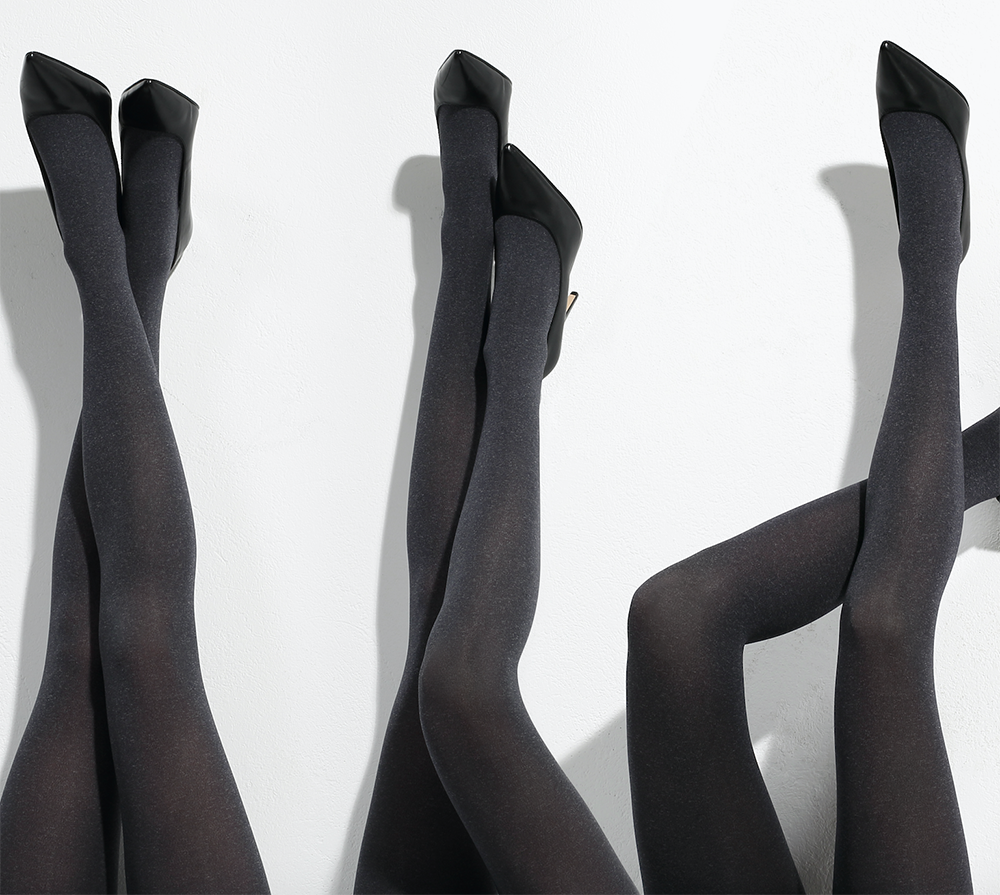Denier (DEN)
Denier (DEN) is a unit of weight used to express the fineness of yarn or fibre, and thus to describe the thickness of hosiery. By comparison, 1 DEN is approximately the diameter of a sixth of a hair. To be more accurate, 1 gram of one denier yarn is equal to the weight in grams of 9000 metres of the yarn, which means that less than 4.5 kg of the material would be enough to circle the Earth along the equator. The finer the fibre, the more transparent the tights, and vice versa. While 10–20 DEN tights are barely visible, 30–40 DEN ones are semi opaque and over 50 DEN ones completely opaque. The thickness and weight of hosiery are important factors defining their style, comfort, look and warmth.


Stockings
Stockings are a garment consisting of two separate pieces. They cover the leg up to the top part of the thigh and are kept up using suspenders, a garter belt or a silicone strip. The most famous character to wear stockings must be Pippi Longstocking. Generally, stockings tend to be very thin and made of nylon or silk. In addition to being comfortable, they are valued as a hygienic alternative to hosiery products reaching all the way to the waist.
Sheer tights
Sheer tights reach up to the waist. They are produced in the 8–30 DEN range and are made of nylon or polyamide, with other materials often added to them. Sheer tights are good for hiding imperfections and giving the legs a smooth and uniform look. Sheer tights are referred to as ‘pantyhose’ in the US where they were invented and first launched onto the market in 1959.


Opaque tights
Opaque tights also reach up to the waist. Their thickness can range from 40–200 DEN and they can be made of either synthetic or natural fibre, for example cotton or wool. They came into fashion in 1919 as dresses became shorter.